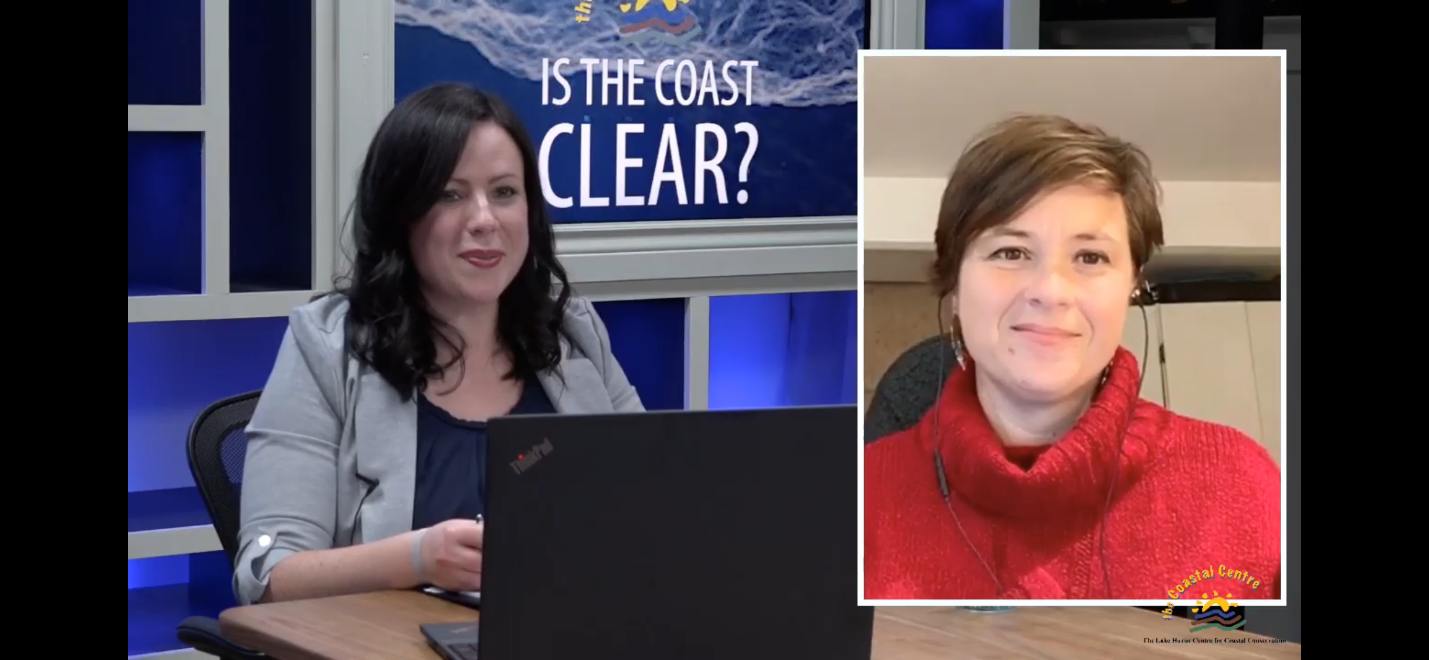The Nuclear Waste Management Organization is supporting scientists working to protect and understand the Great Lakes and their coastal areas.
Over the last few weeks, environmental stewards, scientists and experts have gathered digitally at “Is the Coast Clear?” the Lake Huron Centre for Coastal Conservation’s biennial conference. The online conference series provided a forum for professionals and members of the public to learn about issues affecting the shoreline and coastal areas of Lake Huron. Topics included water levels, erosion, water quality, and climate change.
The NWMO was proud to serve as a gold sponsor and to participate in the conference.
“We rely on the generosity of our supporters so that we can hold events like this, and continue to do the important work we do to support Lake Huron. We’re happy to have the Nuclear Waste Management Organization as our gold level sponsor for the conference. They have been especially generous to the Coastal Centre this year by supporting many of our programs including the Municipal Forum, Green Ribbon Champion program and Coastal Speaker Series,” Erinn Lawrie, Executive Director for the Lake Huron Centre for Coastal Conversation, in her opening remarks.
The NWMO also participated in the conference. Joanne Jacyk, Section Manager of Environmental Assessment with the NWMO shared a presentation titled, “Canada’s plan for the safe, long term management of used nuclear fuel: Developing a community-driven environmental monitoring program.”
Ms. Jacyk shared details about Canada’s plan for the safe, long-term management of used nuclear fuel in a deep geological repository in a manner that protects people and the environment for generations to come. She also provided details about how the NWMO is working to protect water and is incorporating local feedback into its environmental monitoring.
“Protecting the environment and Canada’s waterways, including the Great Lakes, is an important part of the work we are doing at the NWMO,” said Ms. Jacyk. “Equally important is incorporating local feedback into that work. That’s why we work with community members as we co-design our environmental baseline monitoring program, and incorporate their thoughts right from the beginning of our monitoring activity involving water and forest management, to name just a couple examples.”
The Lake Huron Centre for Coastal Conservation is a non-government charitable organization established in 1998 with the goals of protecting and restoring Lake Huron's coastal environment, and supporting a healthy coastal ecosystem through education, restoration, and research projects, their website states.
The NWMO was created to implement Canada’s plan for the safe, long-term storage of used nuclear fuel. South Bruce is one of two communities remaining in our site selection process, along with Ignace, Ontario.

